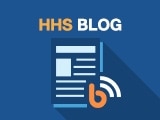Standing by Texas and Louisiana in the Face of Hurricane Harvey

With Hurricane Harvey continuing to intensify today and expected to make landfall late tonight near Corpus Christi, Texas, Department of Health and Human Services personnel and resources have already deployed. HHS is aggressively preparing to help all Americans in the path of what might be the strongest hurricane to strike the United States in more than a decade.
Experienced HHS emergency personnel mobilized earlier this week and are committed to taking every action possible to protect and aid the Texans and Louisianans in harm’s way. HHS Secretary, Tom Price, M.D., has also already spoken with the governors of Texas and Louisiana to assure them of our assistance.
Here’s some of what HHS is doing (the Department will update this list throughout the weekend as the situation develops):
- HHS has called in 460 National Disaster Medical System personnel, including community doctors, nurses and other medical personnel from around the country, to deploy to potentially impacted areas and be in place ahead of the storm. These people will be in position on Friday.
- The HHS Office of the Assistant Secretary for Preparedness and Response (ASPR) moved six Disaster Medical Assistance Teams into the Dallas area along with Incident Response Coordination Teams to support the medical teams in Texas and Louisiana. Additional teams are on alert to provide medical care as needed.
- The Centers for Disease Control and Prevention moved two 250-bed Federal Medical Stations to Baton Rouge, ready to be deployed anywhere in the state, and additional Federal Medical Stations are available in Dallas for patient care in Texas.
- The Office of the Assistant Secretary for Health also organized the U.S. Public Health Service Commissioned Corps for rapid deployment. Those officers stand ready to staff the Federal Medical Stations and meet other public health or medical needs in impacted communities.
- The Substance Abuse and Mental Health Services Administration activated the Disaster Distress Helpline, a toll-free call center, to aid people in coping with the behavioral health effects of the storm and help people in impacted areas connect with local behavioral health professionals. Trained crisis counselors can be reached by calling 1-800-985-5990 or by texting TalkWithUs to 66746.
HHS has also provided data to public health authorities in Texas and Louisiana to assist them in reaching citizens who rely on electrically powered medical equipment at home, like supplemental oxygen supplies. Power outages can become life-or-death situations for people with these medical conditions.
The Department remains in regular contact with Texas and Louisiana health officials to maintain awareness of the local situation and stands ready to augment its support to the states as the situation unfolds.
HHS encourages people in the hurricane zone to take actions to protect their health during and after the storm, including how to maintain safe foods, to safely clean up homes, to avoid the dangers of flood waters, and to recognize and cope with traumatic stress.
Learn more at www.phe.gov/harvey and follow these HHS Twitter accounts to receive critical updates related to the Hurricane Harvey:
ASPR - @PHEgov
HHS - @HHSGOv
CDC - @CDCgov
Secretary Tom Price, M.D. - @SecPriceMD
No Time to Rest from One Hurricane, HHS Helps Prepare for Another
#IAmHHS: Seeing People for Their Strengths, Not Their Weaknesses


